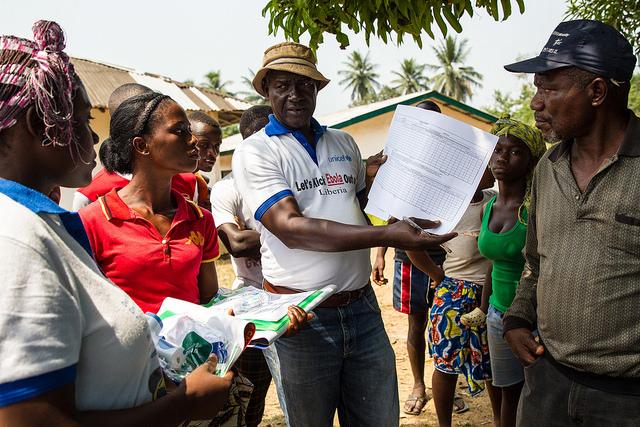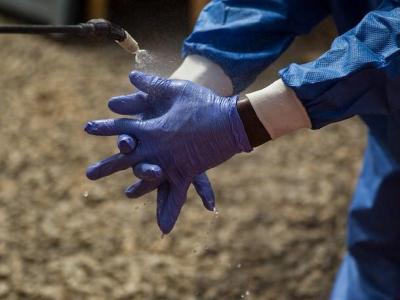Coming a day after political protests flared in two Ebola outbreak locations in the Democratic Republic of the Congo (DRC), the World Health Organization (WHO) today voiced deep concerns about the negative impacts of insecurity on control efforts.
In a statement today, WHO Director-General Tedros Adhanom Ghebreyesus, PhD, said the WHO and its partners are continuing their work, despite a deteriorating security situation that temporarily disrupted or slowed response actions such as vaccination and contact tracing in Beni and Butembo.
The DRC's health ministry said in its daily update today that response activities in Beni and Butembo were severely affected for the second day following protests. And in a separate report detailing the latest outbreak trends, the WHO said cases continue across a geographically dispersed area, and although Ebola infection numbers continue to decline in Beni, the outbreak is intensifying in Butembo and Katwa, with new clusters popping up elsewhere.
Officials address security concerns
"We have reached a critical point in the Ebola response," Tedros said, noting a recent decline in cases in Beni after field activities were intensified.
"These gains could be lost if we suffer a period of prolonged insecurity, resulting in increased transmission. That would be a tragedy for the local population, who have already suffered too much," he said.
Teams in Beni and Butembo are adapting to the situation, despite the security challenges, Tedros said. For example, in Beni, contact tracing has been resumed with the help of local community relays.
In general, communities in Ebola-affected areas have supported the response, he said. "We ask for everyone to protect health facilities and provide access for responders to the affected populations so that we can stop this outbreak."
The DRC's health ministry also addressed the vandalism that occurred yesterday, which it said also affected Beni's public and private health centers.
"Although the Ministry respects the right to protest by the population, this right can not be used as an excuse to attack health facilities and health workers," the ministry said. "In addition to being a crime, these serious acts unnecessarily expose the entire community to a greater spread of the Ebola outbreak."
Two new cases today
The DRC's health ministry today reported two new confirmed cases, both from Katwa. The new development lifts the overall outbreak total to 593, which includes 545 confirmed and 48 probable illnesses.
Two more deaths were reported, one from Mabalako and the other from Beni. So far, 359 people have died from their Ebola infections.
Health officials are investigating 66 suspected cases, but the ministry added that monitoring activities by teams in Beni and Butembo were severely limited today following yesterday's protests and that responders could handle very few alerts.
Vaccination was on hold in Beni, Butembo, Katwa, and Mabalako health zones.
The damaged transit center in Beni--where suspected case-patients are tested-- isn't operating, but Ebola treatment centers in Beni and Butembo are open, but with fewer health workers.
Another health worker infected
In its weekly update on the outbreak, the WHO said that, over the past 3 weeks, cases have been concentrated in Katwa, Komanda, Mabalako, Beni, and Butembo. However, it noted that a case was recently reported in Nyankunde, a newly affected area in neighboring Ituri province. The case involves a person who probably contracted the virus in Komanda.
"This case, highlights the continued high risk of continued spread of the outbreak and the need to strengthen all aspects of the response in Ituri, North Kivu and surrounding provinces and countries," the WHO said.
According to the report, one more infection was reported in a health worker, raising the total to 54, including 18 deaths.
People ages 15 to 49 make up 60% of patients. And of the 355 cases spanning those ages, 228 (64%) involve females. The WHO noted that the highest attack rates are in children older than 1 year, especially boys, and girls and women age 15 and older.
See also:
Dec 28 WHO update
Dec 28 WHO statement
Dec 28 DRC update

















